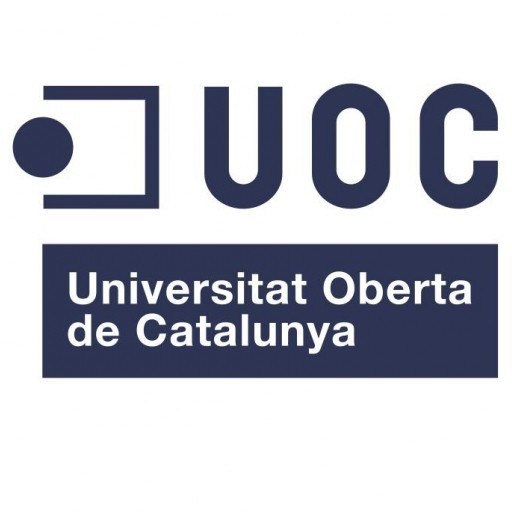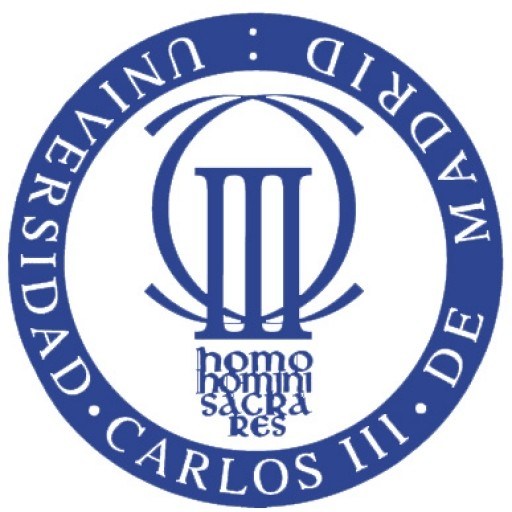Photos of university / #uabbarcelona
The Bachelor's Degree in Computer Engineering at the Autonomous University of Barcelona offers a comprehensive and rigorous education designed to prepare students for the dynamic field of computing technology. This programme combines theoretical foundations with practical skills, enabling graduates to design, develop, and manage complex computer systems and software solutions across various industries. Throughout the course, students explore core areas such as algorithms, programming, system architecture, networks, databases, cybersecurity, and software engineering, ensuring a well-rounded mastery of essential computing concepts. The curriculum emphasizes developing problem-solving abilities, analytical thinking, and innovative approaches to technology challenges, equipping students to adapt to rapidly evolving industry demands. In addition to technical training, the programme fosters teamwork, communication skills, and project management expertise, preparing graduates for collaborative work environments. The university provides state-of-the-art laboratories, industry partnerships, and opportunities for internships, enabling students to gain real-world experience and build professional networks. Graduates of this programme are well-positioned to pursue careers in software development, system analysis, network administration, cybersecurity, IT consulting, and research. They can also continue their education through master's programmes or engage in entrepreneurial activities within the tech sector. With a focus on sustainability, ethical considerations, and social responsibility, the programme encourages students to develop innovative solutions that positively impact society. By the end of their studies, students will possess the technical proficiency, critical thinking, and adaptive mindset needed to thrive in the fast-paced world of computer engineering, making significant contributions to technological progress and digital transformation.
The Bachelor's Degree in Computer Engineering at the Autonomous University of Barcelona (UAB) offers a comprehensive curriculum designed to prepare students for the evolving world of technology and innovation. Throughout the program, students will gain a solid foundation in both theoretical and practical aspects of computer science, engineering, and information technology. The program emphasizes developing critical thinking, problem-solving skills, and technical competence, enabling graduates to meet the demands of the digital era.
Students will explore core subjects such as programming languages, algorithms, data structures, and systems architecture, which form the backbone of computer engineering. The curriculum also includes courses in software engineering, operating systems, databases, and network communications. Moreover, students are introduced to advanced topics like artificial intelligence, machine learning, cybersecurity, and cloud computing, reflecting the latest trends and technological advancements in the field.
The program emphasizes hands-on experience through laboratories, projects, and internships that enable students to apply theoretical knowledge in real-world scenarios. This practical approach enhances skills in system design, software development, and troubleshooting. Partnerships with technology companies and research centers provide valuable opportunities for internships, collaborative projects, and industry exposure, fostering an entrepreneurial and innovative mindset.
In addition to technical skills, the program promotes the development of soft skills such as teamwork, communication, and project management. Student-led groups and extracurricular activities further support the acquisition of leadership qualities and professional ethics. The curriculum is designed to be flexible, allowing students to specialize in areas such as software development, embedded systems, or network security, according to their interests and career goals.
Graduates of the Computer Engineering program at UAB are well-equipped to pursue careers in various sectors including information technology, telecommunications, software development, hardware design, and research. They also have the necessary skills to undertake postgraduate studies or engage in entrepreneurial ventures in the technological arena. With a strong emphasis on innovation and continuous learning, the program prepares students to be proactive contributors to the digital transformation of society.
Program requirements: The Bachelor’s Degree in Computer Engineering at the Autonomous University of Barcelona requires applicants to hold a high school diploma or an equivalent qualification recognized by Spanish authorities. Prospective students must demonstrate a solid foundation in mathematics, physics, and chemistry, as these are essential for successful study in engineering fields. Proficiency in Spanish and Catalan is necessary for participation in lectures and academic activities, while knowledge of English is highly recommended due to available international resources and opportunities. Applicants are typically required to submit academic transcripts, a motivation letter, and may need to undergo an interview process or entrance exam depending on their country of origin. Prior experience or coursework in computer science, programming, or information technology can be advantageous but is not strictly compulsory. The program is designed to admit students who demonstrate analytical thinking, problem-solving abilities, and an interest in the development, implementation, and management of computing systems. International students should verify specific admission criteria, as requirements may vary based on country of origin and current university policies. In addition to academic prerequisites, students are encouraged to participate in extracurricular activities related to technology and computing, which can enhance their applications. The university also recommends applicants familiarize themselves with the curriculum, which includes foundational courses in mathematics and physics, core courses in programming, algorithms, and data structures, as well as specialization subjects such as software engineering, hardware design, and network security. The overall goal is to select motivated candidates capable of contributing to advanced research and innovation in computer engineering. Successful applicants will have the opportunity to engage in practical projects, internships, and research initiatives facilitated by the university's partnerships with industry leaders. Moreover, prospective students should ensure they meet all deadlines for application submissions and prepared documents. The program aims to develop graduates who are well-equipped for careers in software development, systems analysis, cybersecurity, and other fields within information technology.
The Autonomous University of Barcelona offers various financing options for students enrolled in the Computer Engineering program to facilitate access and support their academic journey. Prospective and current students can benefit from a range of scholarships, grants, and financial aid programs designed to reduce the economic burden associated with higher education. The university provides scholarships based on academic merit, economic need, or specific criteria such as research excellence and demographic background. These scholarships can cover partial or full tuition fees and sometimes include additional allowances for living expenses or academic materials.
In addition to institutional scholarships, students can explore external funding opportunities provided by the Spanish government, regional authorities, or private foundations. The Spanish Government offers grants such as the "Becas del Ministerio de Educación y Formación Profesional," which aim to support students in higher education, especially those demonstrating financial need, academic excellence, or belonging to underrepresented groups. Regional grants may also provide financial assistance to residents of Catalonia, including the Autonomous University of Barcelona students, further easing the cost of studies.
Students enrolled in the Computer Engineering program can also access student loans offered by Spanish banks and financial institutions, with favorable repayment terms and interest rates. The university facilitates access to information about these loan options and sometimes collaborates with financial institutions to provide tailored loan schemes for students. Furthermore, the university promotes part-time employment opportunities within the university facilities and local community, allowing students to earn income while studying without compromising academic responsibilities.
The Autonomous University of Barcelona actively informs students about various funding options through orientation sessions, online portals, and academic advising services. The university encourages early application for scholarships and grants to maximize funding opportunities and advises students on maintaining academic standing and good conduct, which are often prerequisites for continued financial aid eligibility. Overall, the university’s comprehensive approach aims to make higher education accessible and affordable for all students pursuing the Computer Engineering program, ensuring that financial constraints do not hinder academic success or career development.
The Bachelor’s Degree in Computer Engineering at the Autonomous University of Barcelona offers a comprehensive curriculum designed to prepare students for the rapidly evolving field of technology. This program emphasizes both theoretical foundations and practical skills, ensuring graduates are well-equipped to address complex challenges in computer systems, software development, and related areas. The program typically spans four years, corresponding to 240 ECTS credits, conforming to European higher education standards. Students begin by acquiring fundamental knowledge in mathematics, physics, and programming, which serve as the building blocks for more advanced topics such as algorithms, data structures, computer architecture, and operating systems.
As they progress, students explore specialized areas including software engineering, databases, networks, cybersecurity, artificial intelligence, and machine learning. The curriculum integrates hands-on training through laboratory sessions, project work, and internships to foster practical experience and industry readiness. The program also emphasizes the importance of teamwork, communication skills, and ethical considerations in technology development. Alongside coursework, students may participate in research activities, technological projects, and conferences to stay abreast of emerging trends.
The university collaborates with various companies and research centers, facilitating internships and employment opportunities for students. Graduates of this program typically pursue careers as software developers, systems engineers, network administrators, cybersecurity analysts, or continue their studies through master’s or doctoral programs. The program aims to produce well-rounded professionals capable of contributing to technological innovation and solving real-world problems. Continuous curriculum updates ensure that the program remains aligned with technological advancements and industry needs, helping students to develop skills relevant in the global digital economy.




